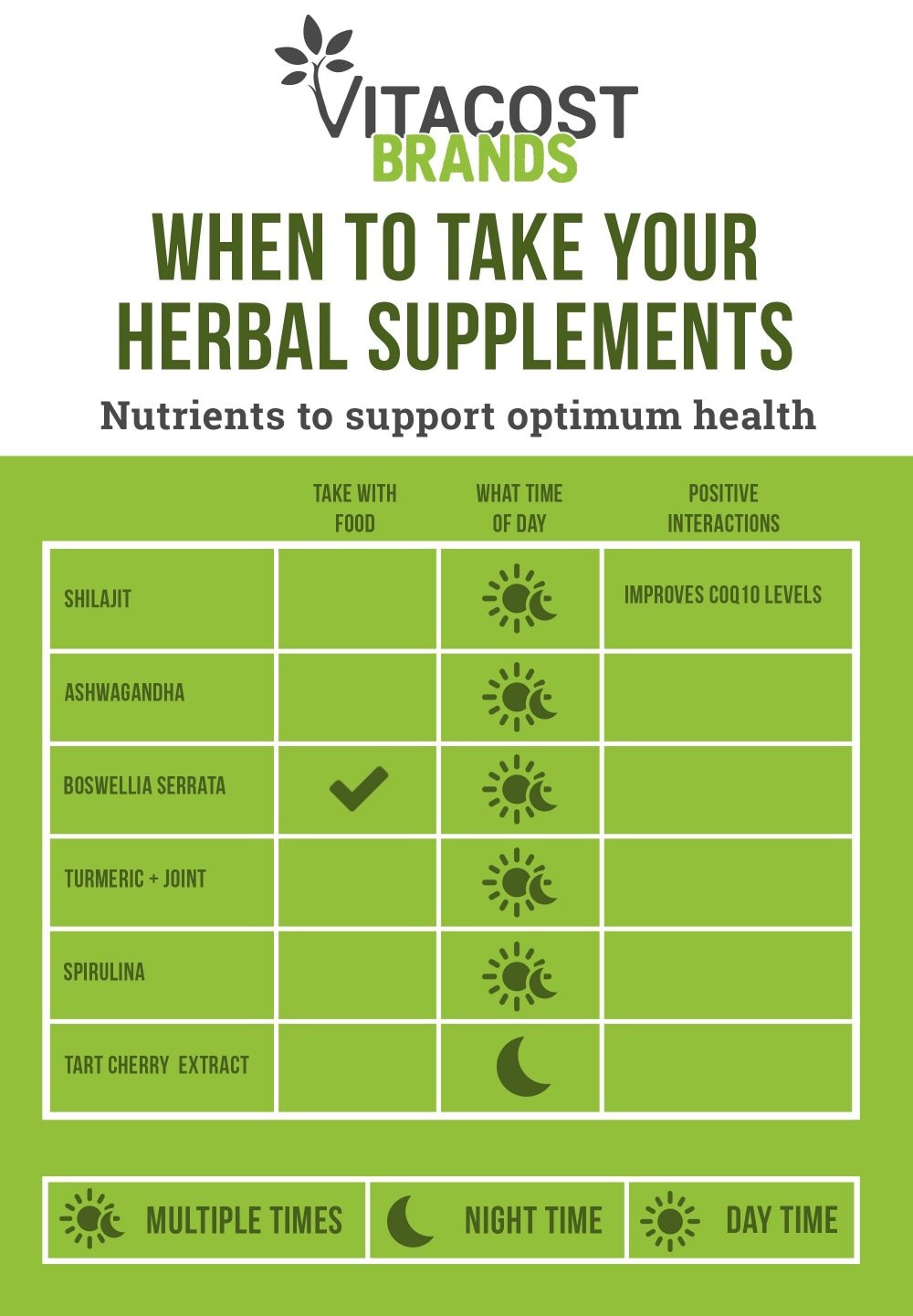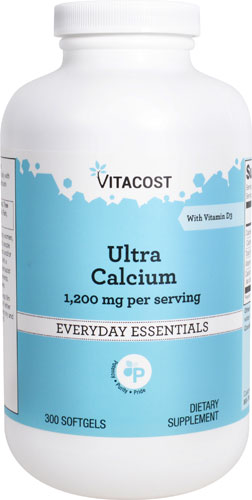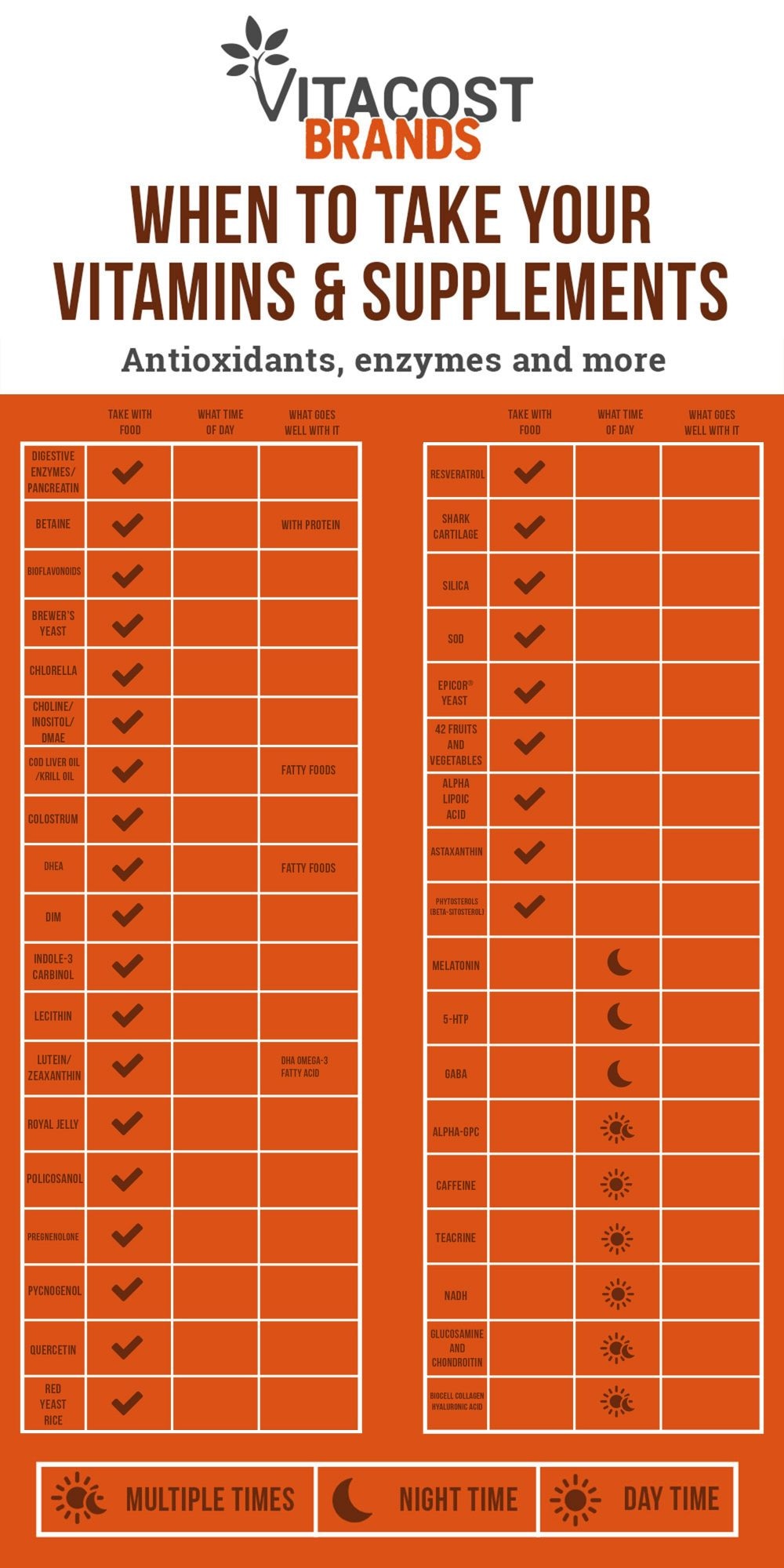Supplement bottles always tell you how many capsules, tablets, tablespoons or scoops to take per day. But most don’t dive any deeper than that, leaving you with a lot more questions. When is the best time to take vitamins A, B, C and D? Should you take amino acids with or without food? Can you spread out your glucosamine supplement into multiple doses? Are there any dangerous nutrient interactions? If you don’t have answers to these questions, you may not be getting the full health benefits – if any at all.
Hi, I’m Sam Kramer, Vitacost Registered Dietitian and host of Nutrition Bites.
I understand taking supplements can become a complicated chore, especially if you’re taking a complex multivitamin or several different supplements at once. It’s nearly impossible to keep track of every nutrient. So I decided to do the dirty work for you and drummed up an easy-to-read chart of how and when to take specific supplements. I sifted through all of our Vitacost brand supplements to help you optimize absorption.
I’ve also added a fun tidbit on nutrient interactions. Many people only think about interactions when taking prescription drugs, but supplements can disagree with each other, too. Sometimes, the food you consume or supplements you take can have a negative – or positive – impact on your body’s ability to absorb other nutrients.
Let’s take a closer look at supplement timing and interactions…
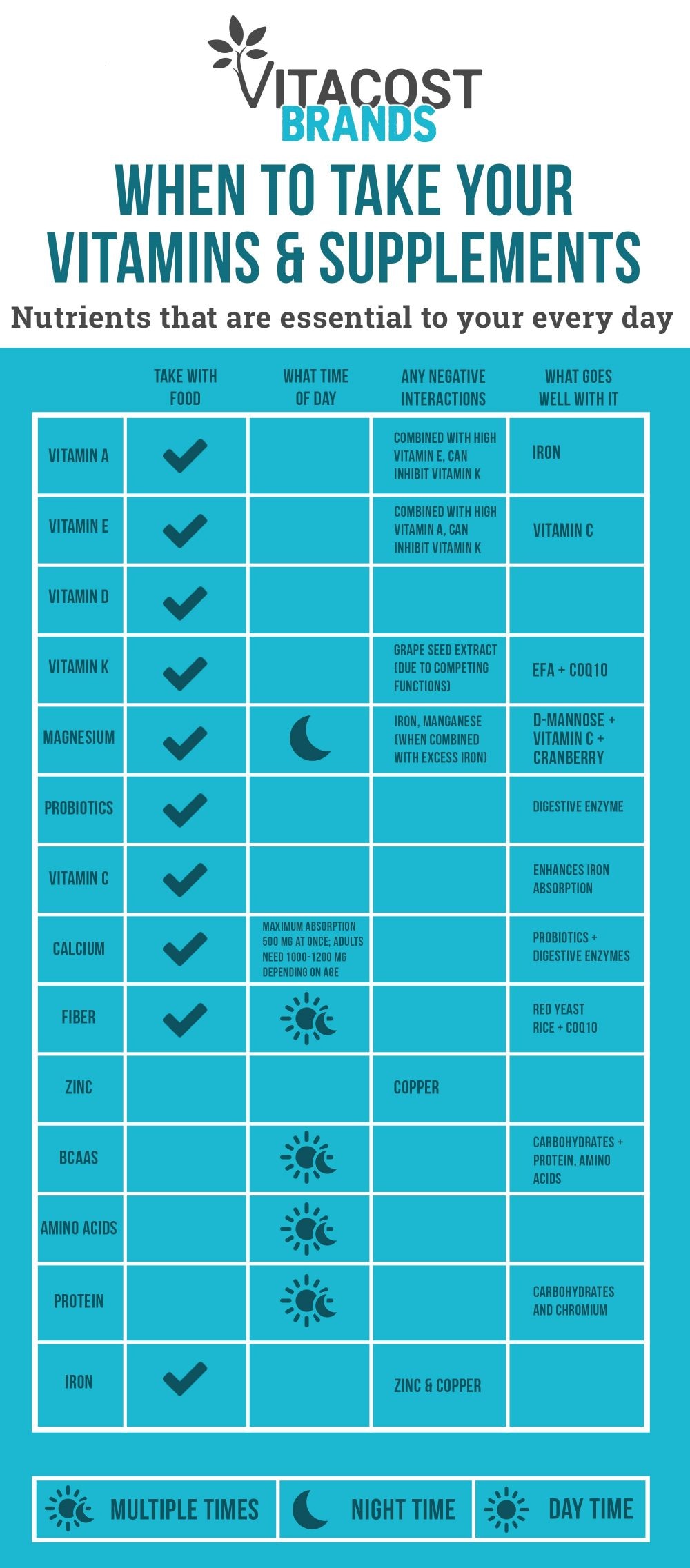
Vitamins You Should Take with Food
Fat-soluble vitamins A, D, E and K work better when you eat a little something with them. Judging by the name, you can gather that these foods should be consumed with fatty foods. Choose healthy fats, such as olive oil, to help aid in their digestion and absorption.
Supplements You Can Take on an Empty Stomach
On the flip side, there are supplements you want to take on an empty stomach, because the presence of food can impair their digestion and absorption. Amino acids are an example of a supplement that needs to be taken without food. If there are too many amino acids available, they compete for transportation into the small intestine, where they’re absorbed.
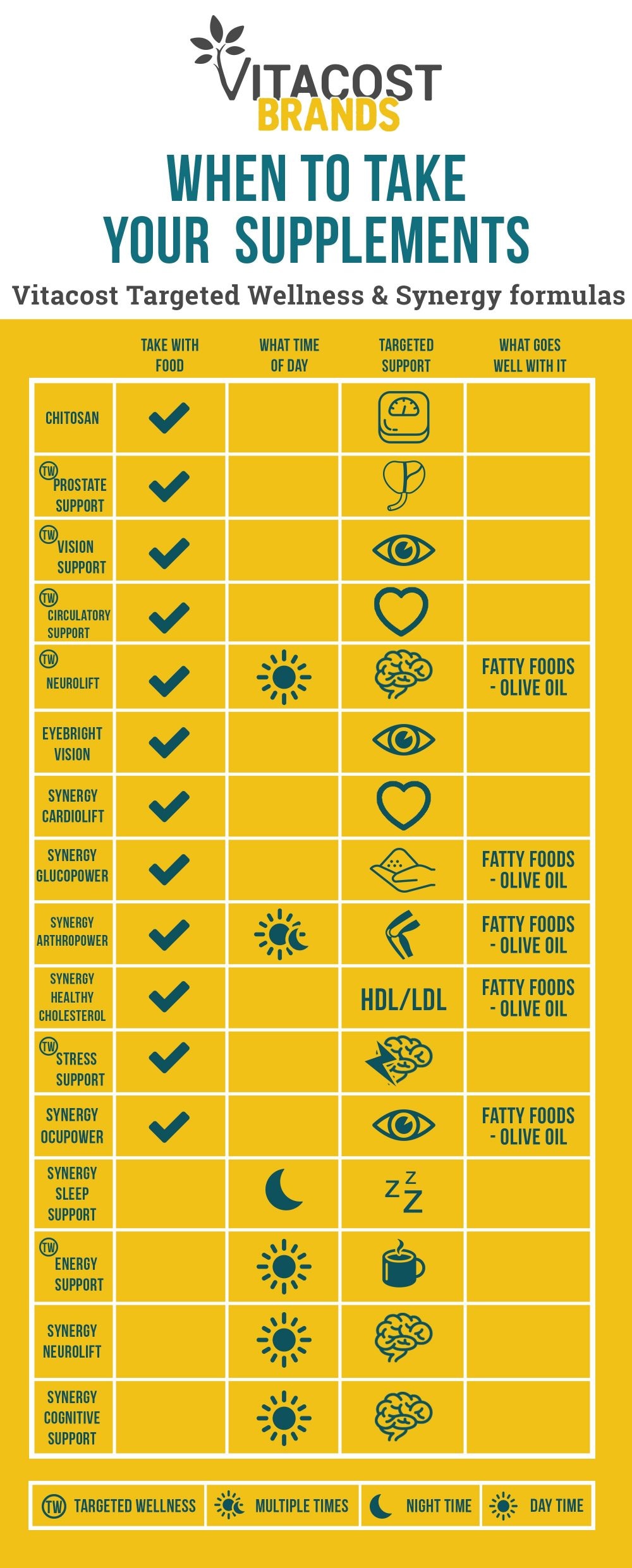
Supplements to Take in the Morning
Supplements that provide energy, including formulas that feature caffeine, should be taken in the morning when you can get the most out of them. After all, you’re most likely looking for a boost to help you be productive at work, in school or during athletic performance. Also, taking energy-supportive supplements at night can impair sleep patterns. If first thing in the morning is too early for your body, aim for at least five to six hours before going to bed, so you can still enjoy a solid night’s sleep.
Supplements to Take at Night
Supplements that induce a relaxing or calming effect are best left for your evening routine. One clear nighttime supplement is gamma-aminobutyric acid (GABA), a neurotransmitter that supports a relaxed state of mind and promotes healthy sleep. But 5-HTP, also known as serotonin, is another supplement you certainly want to take in the evening due to its calming effect.*
Supplements You Can Spread Throughout the Day
There are some formulas that call for multiple servings in one day. There are two reasons for this: 1) the effective daily dose is too large for one serving or 2) the nutrient is best taken in smaller servings in order to optimize absorption. The first scenario is generally the case for joint support supplements, such as glucosamine and chondroitin. Other nutrients have a maximum absorption level. For instance, the body can only absorb 500 milligrams of calcium at one time. But adults need 1 – 1.3 grams per day, depending on age. Therefore, breaking up your calcium supplement throughout the day is more beneficial.
Supplement Interactions You Need to Know
As mentioned earlier, there are positive and negative interactions related to nutrients. Excess zinc, for instance, can inhibit copper absorption; and excess magnesium can inhibit iron absorption. So what can you do? Be wary of your mega-dose multivitamins.
Of course, it’s not all bad. Some nutrients work together to improve the absorption of one or the other. Have you ever had a salad with a nice lemon dressing? This combination works, because the vitamin C from the lemon dressing helps enhance the absorption of iron from the leafy greens. And the trick doesn’t just apply to food pairings.
Your supplements should have synergistic formulas, as well. That’s why you see black pepper extract, also known as Bioperine®, in turmeric supplements and vitamin E often paired with vitamin C to enhance C’s antioxidant properties.
